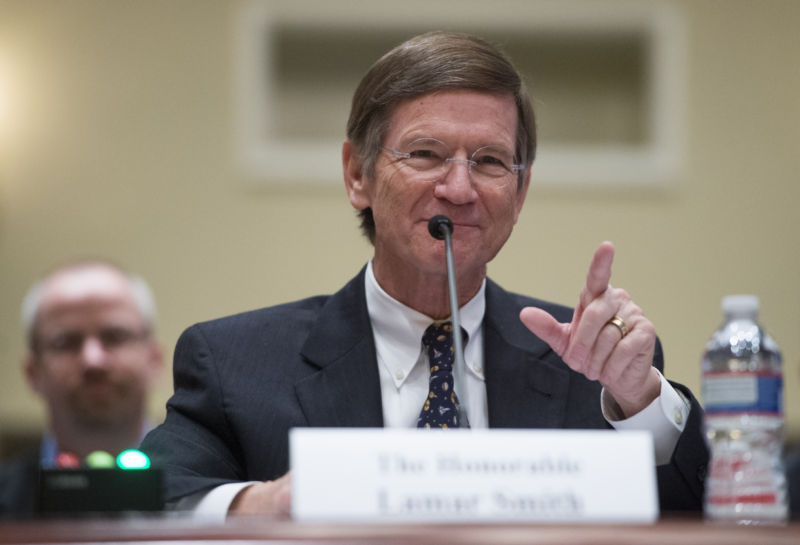
Enlarge / Chairman of the Science, Space, and Technology Committee Lamar Smith, R-Texas, seen here in 2013. (credit: Bill Clark/CQ Roll Call)
Two Republican members of Congress sent a formal letter Tuesday to the Environmental Protection Agency’s Office of the Inspector General, expressing concern that “approximately a dozen career EPA officials” are using the encrypted messaging app Signal to covertly plan strategy and may be running afoul of the Freedom of Information Act.
The open source app has gained renewed interest in the wake of the election of President Donald Trump.
As Ars has reported previously, all Signal messages and voice calls are end-to-end encrypted using the Signal Protocol, which has since been adopted by WhatsApp and other companies. However, unlike other messaging apps, Signal’s maker, Open Whisper Systems, makes a point of not keeping any data, encrypted or otherwise, about its users. (WhatsApp also does not retain chat history but allows for backups using third-party services, like iCloud, which allows for message history to be restored when users set up a new device. Signal does not allow messages to be stored with a third party.)
The letter was written by Rep. Lamar Smith (R-Texas) and Rep. Darin LaHood (R-Ill.), who are the chair of the Committee on Science, Space, and Technology and the chair of the subcommittee on Oversight, respectively.
The congressmen note that the EPA has previously examined employee use of text messages to conduct government business and found that only a minuscule fraction of those messages was retained under FOIA.
“Not only does this demonstrate the vast issues presented with using text messages to conduct official business, but raises additional concerns about using messaging applications to conduct official business, which make it virtually impossible for the EPA to preserve and retain the records created in this manner to abide by federal record-keeping requirements,” they concluded.
The two republicans gave the agency until February 28 to respond.
The EPA OIG did not immediately respond to Ars’ request for comment.